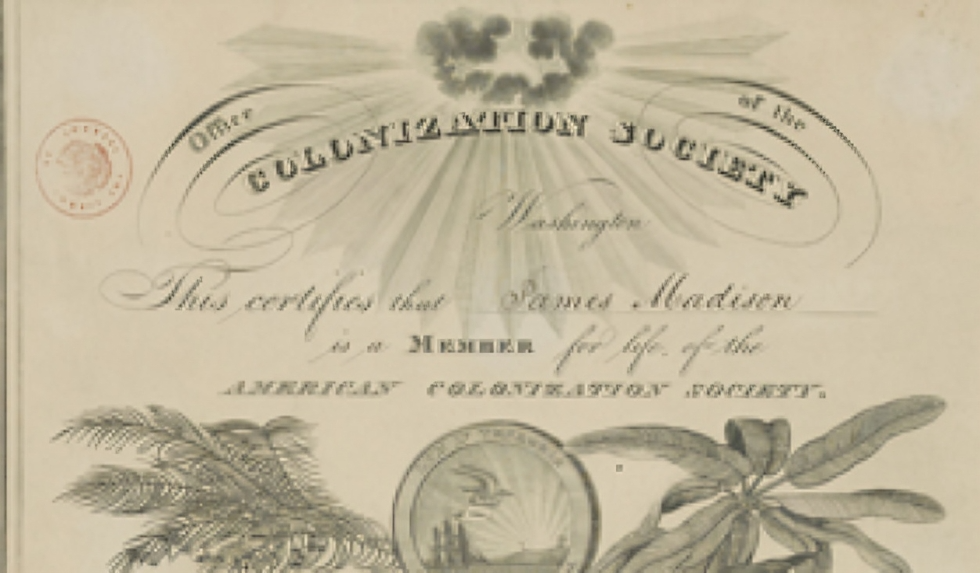
In 1816 around fifty influential men including Elias Caldwell, Bushrod Washington, Henry Clay, John Randolph, and Daniel Webster met in Washington, D. C., to discuss sending U.S. blacks to Africa. Clay, a slaveholder who felt that free blacks were a threat to slavery, proposed “to rid our country of a useless and pernicious, if not dangerous portion of its population.” Others were primarily concerned with African evangelization, and still others believed that a colony would give blacks the opportunity to be truly free. Finally, on December 28, these delegates formed the American Society for Colonizing the Free People of Color in the United States.
The American Colonization Society (ACS) was founded in 1816 with the goal of resettling free African Americans in Africa. James Madison, who was a prominent supporter of the ACS, was closely associated with the organization’s early activities.
In 1816, Madison, along with other influential figures, helped to establish the society and supported its mission of colonization. The ACS aimed to address issues related to slavery and the integration of free African Americans into society by sending them to Liberia, which the society helped to establish as a colony for freed slaves.
A certificate from this period, related to Madison or issued by the ACS, would typically indicate a formal endorsement or involvement in the society’s activities. For instance, such a certificate might serve as a document acknowledging membership, a contribution, or a specific role within the organization. It could also commemorate the support and efforts of prominent individuals like Madison in promoting the ACS’s goals.
The American Colonization Society had complex and controversial objectives. While it was supported by some as a means to provide freedom and opportunities for African Americans, it was also criticized for its underlying assumptions about race and its impact on the lives of those it aimed to help. James Madison’s involvement in the ACS reflects the historical context of early 19th-century attitudes towards race, slavery, and colonization.